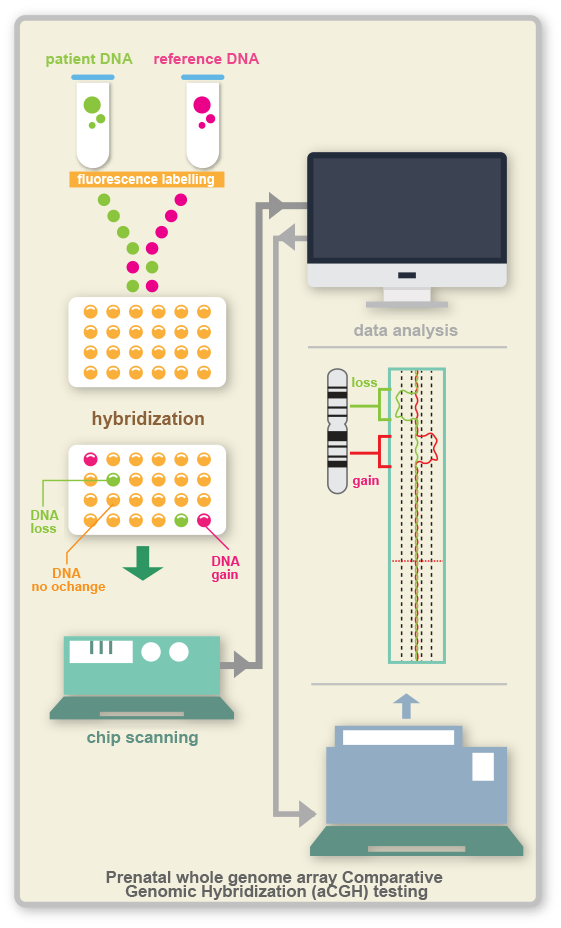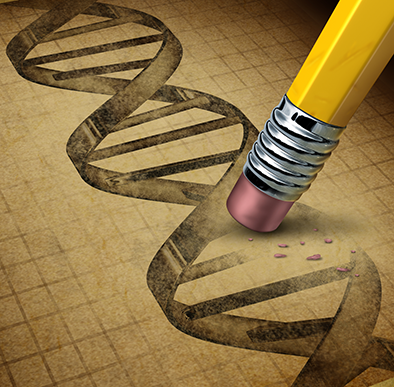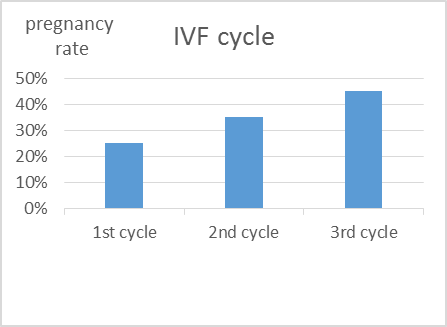Prenatal whole genome array Comparative Genomic Hybridization (aCGH) Testing

Previously, we have done polymerase chain reaction (PCR) and karyotype examination of the chromosome under the microscope using chorionic villus sampling or amniocentesis samples. Now, in addition, we can do prenatal whole genome array Comparative Genomic Hybridization (aCGH) testing.
 aCGH test is much more sensitive than karyotyping. It detects a chromosome gain or loss even if conventional chromosome testing by karyotype shows normal results.
aCGH test is much more sensitive than karyotyping. It detects a chromosome gain or loss even if conventional chromosome testing by karyotype shows normal results.
The smaller possible gains or losses of genetic material, are called "Sub microscope imbalances" because they cannot be seen through the microscope. They may cause birth defects, developmental delays and genetic syndromes.
Early prenatal diagnosis of a gain or loss of genetic material on a specific chromosome can provide additional information which may enable us to provide necessary care for you and your foetus both pre and postnatal. If necessary, you and your family members may be referred to clinical geneticist for further counselling.
It is possible that a diagnosis unrelated to the reason of testing may be found including predisposition to mental retardation, autism, cancer, late-onset disease or other medical conditions. All these additional information may lead to psychological stress. Therefore, you need to be prepared psychologically and indicate what information you would like to know from the test.





